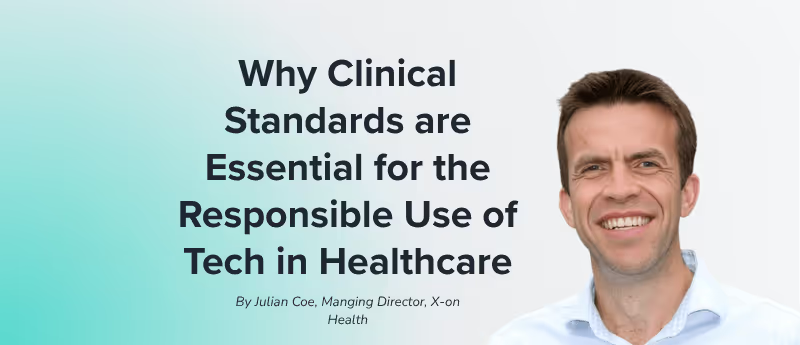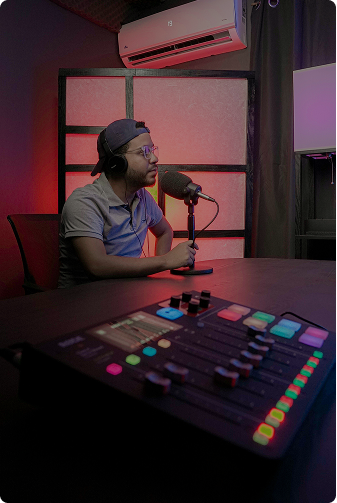AR & VR: from video game consoles to healthcare
AR & VR: from video game consoles to healthcare
.png)
In this opinion piece, Liz Kwo (Everly Health, MA, USA) explores the application of Virtual Reality (VR) and Augmented Reality (AR) technologies in medicine. Liz discusses how surgery can benefit from such stimulation technologies, how they can help to provide relief and treat psychological and physical problems, and what the future holds for utilizing these technologies in the healthcare industry.
Once used only in gaming, Virtual Reality (VR) and Augmented Reality (AR) technologies have made their way into healthcare, with more companies using them as a means to consolidate their digital solutions. With an estimated market of $2.4 billion by 2026, VR in healthcare is changing the way patients are treated and doctors are trained, while enabling cost savings.
To start off, AR is an augmentation of the real-world environment. AR projects digital information onto existing surroundings while enabling users to experience them. VR is a technology-enabled simulation that shuts down reality completely and allows the user to immerse themselves in a wholly digital environment.
That said, here are three ways that I expect the healthcare industry to utilize this technology:
Surgery is an area that can benefit from this technology – particularly for preparation, training and execution
Challenging surgeries can be prepared beforehand through AR and VR by walking surgeons through a 3-Dimensional operation plan, designed with several scenarios to better tackle any circumstance during the actual procedure. These controlled “rehearsals” can improve the surgery outcomes, in addition to serving as an explanation to patients about the surgeries they will undergo to ultimately help address concerns and potential anxiety. It could also serve as a great educational tool for medical students to feel as if they are actually in the operating room with the help of VR goggles.
Relief and treatment of psychological and physical function problems
VR can also be used to treat addictions, sleep disorders and phobias. For example, VR simulations can help professional therapists better understand the patterns of various psychological problems and prescribe more efficient treatments. Immersive VR can also work for patients who have suffered a brain injury.
VR and AR applications represent the solution for addressing health issues such as depression, anxiety, recovery and chronic pains for patients located in isolated or difficult- to-access-areas. As a result of this technology, treatments that are prescribed, such as meditation and relaxation sessions or joint function recovery exercises, can be conducted by patients and then monitored and reported to attending physicians.
Improve the medical experience of patients and help decrease pain
VR headsets are being utilized to help patients relax and reduce their anxiety before a surgical procedure. In a pilot study, patients at St George’s Hospital (London, UK) were scheduled to have surgery in the upper limb area under regional anesthesia and were transported to exotic locations across the world with the help of VR headsets. These headsets helped the patients feel more relaxed and less anxious about their operations, with all patients reporting these headsets improved their overall hospital experience. Using this type of VR headset helps decrease the levels of anxiety in patients who are awake during surgery and also the amount of general anesthesia administered, which usually prolongs the time required for a patient's recovery after surgery.
…but here’s the catch:
The main challenges faced by VR technologies are the limited access to high-speed operating networks such as 5G and the little use of 5G devices, mainly because of their expensive price tag. Companies that acknowledge these challenges and come up with solutions to address them are the ones that will surpass their competition and will thus attract more consumers to use these devices.
So, what’s next?
Ultimately, the more interest the healthcare industry shows in utilizing these technologies, the more accessible they will become. With more healthcare professionals and consumers utilizing VR and AR technologies and devices, these tools are becoming a priority for companies seeking to define or improve their digital solutions. And, with the adoption of VR and AR in several medical fields, as well as in medical students’ education, it is expected that many development companies will allocate more research and funds to perfecting these technologies, ultimately improving the medical experience and health outcomes of patients.
Disclaimers:
The opinions expressed in this feature are those of the interviewee and do not necessarily reflect the views of Future Medicine AI Hub or Future Science Group.
Profile:

Liz Kwo is a physician executive and author who has 20+ years of experience in building digital health and medical management companies, with a focus on using data analytics to transform health and wellness at scale. Currently she is the Chief Medical Officer of Everly Health (MA, USA) and the author of "DigitalMD: Revolutionizing the Future of Healthcare." https://drlizkwo.com/. Most recently, Liz served as Deputy Chief Clinical Officer for Elevance (IN, USA) to modernize disease management and care delivery for 43 million Americans covered under Medicare, Medicaid, and Commercial businesses.
Prior to Elevance, Liz started several venture backed companies as the CEO and co-founder of InfiniteMD (MA, USA) (acquired by Consumer Medical, subsequently acquired by Alight) and President and co-founder of New Pathway Education and Technology Group (Shanghai, China) (acquired by EIC Education). Her prior healthcare work includes supporting clinical data innovation at American Well (MA, USA), Medtronic (Tolochenaz, Switzerland) and Third Rock (MA, USA).
Liz is on the Board of Directors of Asensus (NC, USA), Walmart Mexico and Central America, BlueWind Medical (UT, USA) and ChroniSense (MA, USA). Liz continues to see patients in urgent care at Cambridge Health Alliance Hospital (MA, USA), teach residents as a faculty lecturer at Harvard Medical School (MA, USA) and is board certified in Preventive Care and Occupational Medicine. She earned a BA in Human Biology from Stanford University (CA, USA), MD from Harvard Medical School, MBA from Harvard Business School and an MPH from Harvard T.H. Chan School of Public Health.
.png)
.png)
.png)



